Chekhov 120

The Institute of Slavic Studies of the University of Debrecen is organising an international conference dedicated to the 120th anniversary of A.P. Chekhov’s passing and will take place from 15 to 17 July 2024.
The theme of the conference is the European reception of Chekhov. More than a century since the Russian writer’s passing will allow us to examine the reception of his works as a process, and highlight the main achievements that have contributed to the preservation and revival of Chekhov's legacy. From this perspective, we will attempt to understand the reasons for the constant presence of the writer's work on the book market and in different art forms, as well as to gain insight how different national cultures have sought to understand themselves through Chekhov's texts, and what strategies of interpretation have been adopted in different historical periods. Another aim of the conference is to answer whether it is possible to speak of regional congruence and similar trends in interpretation, i.e., whether historical experience and the global political situation influence the European reader's attitude towards Chekhov's literary heritage.
The validity of our theoretical assumptions is supported not only by the fact that today, the creative reception and the number of medial transformations of Chekhov's works far exceed contemporary rewritings of other Russian classics but also by the fact that over the last hundred years in the culture of many nations, the questions of identity (artistic, national, or related to the life of intelligentsia) at crucial moments in the history of theatre and in periods of social crisis often have been articulated exactly through the interpretation of Chekhov's plays. It will serve as the starting point of the conference, which focuses on Chekhov's prose and drama heritage: peculiarities of Chekhov's reception in certain regions of Europe, literary criticism, problems of translation, interpretations on stage, in film, in music, and other phenomena of creative reception.
Suggested conference topics:
- The peculiarities and changes of the reception of Chekhov in different national and regional cultures
- The influence of historical periods, as well as the influence of changes in the political situation on the reception of Chekhov
- Turning points in the literary critics' perception of Chekhov
- Chekhov's prose and drama on the European stage over the last 120 years
- Contemporary theatrical interpretations of Chekhov's works
- Film adaptations of Chekhov's texts: films of historical significance, modern and postmodern approaches
- History of translation of Chekhov's works: from word-to-word translations to rewritings; evolution of translation methods; tendencies in translation
- Translation techniques in Chekhov's prose and drama
- Rewritings: prose and dramatic works based on Chekhov's texts
- Interaction of works of music with Chekhov's literary works
Our institute welcomes all colleagues interested in joining the discussion on any of the topics listed above. The format is on-site conference, involving several sections consisting of twenty-minute presentations.
Languages of the conference: Russian and English.
The proceedings of the papers are planned to be published in hard copy.
The conference will be held at the University of Debrecen, which will provide accommodation for participants. Travel expenses will be covered by the participants.
The organisers of the conference, i.e. the colleagues of the Institute of Slavic Studies at the University of Debrecen would be delighted to welcome you to the conference and look forward to seeing you in Debrecen.


